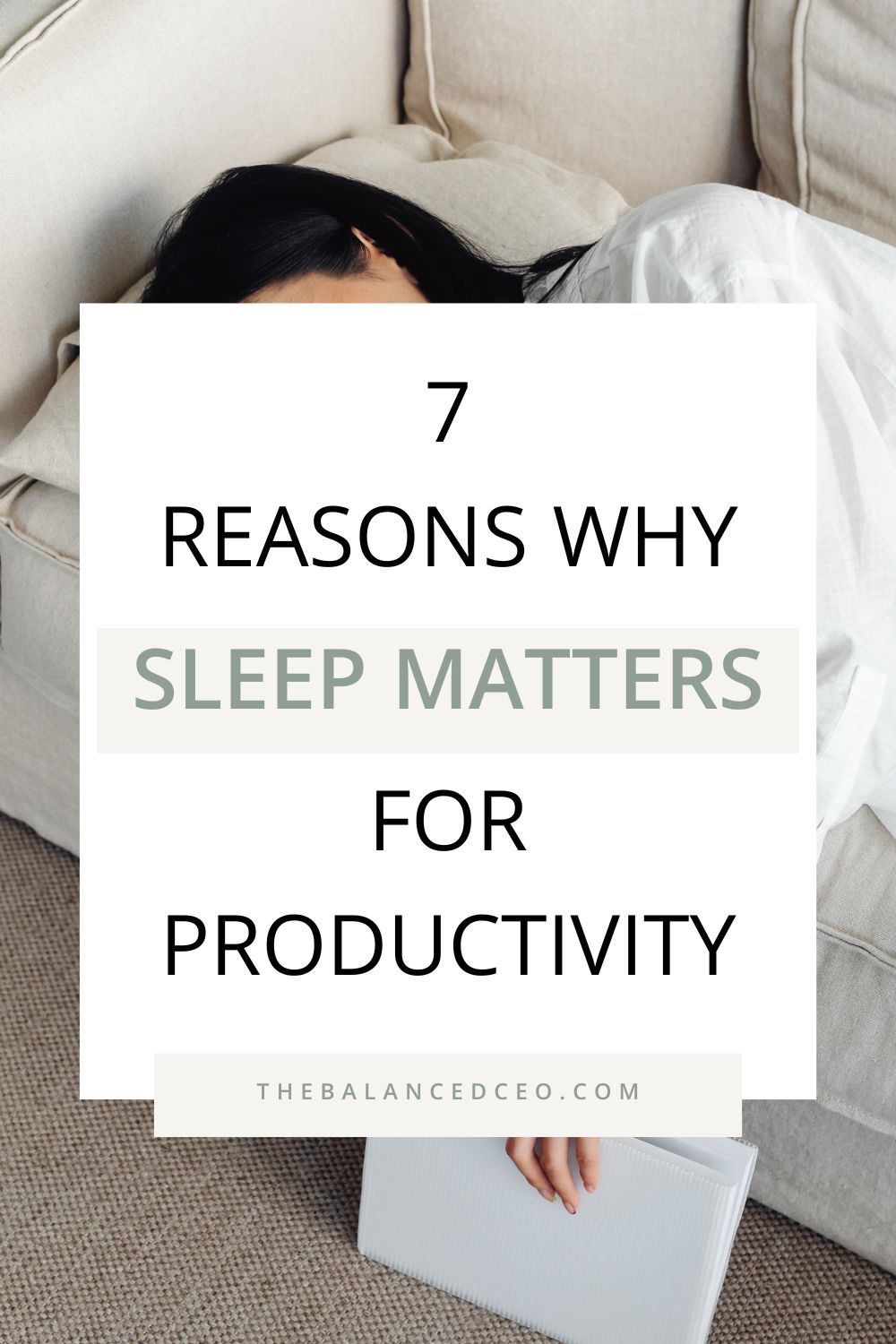This post may contain affiliate links, which means I’ll receive a commission if you purchase through my links, at no extra cost to you. Please read full disclosure for more information.

For probably too long, the image of the CEO has been that of a candle being burnt at both ends.
Former UK prime minister Margaret Thatcher famously only slept for four hours a night while Elon Musk recently divulged that his work week has stretched to 120 hours since acquiring Twitter. So, is there a point where near-constant action offers diminishing returns?
It’s highly possible, as the diminishing returns on Twitter’s stock price currently testifies. Too many of us get too little sleep. For the executive, the picture is often even more bleary. A 2018 McKinsey study of 196 business leaders found two-thirds were dissatisfied with the amount of sleep they got and 55% reported poor sleep quality.
Peak performance hinges on being properly rested. A star athlete would be fined heavily and likely dropped from their team if they were caught painting the town red the night before the big game. A CEO is under even more pressure as the leader of their team. So, with that in mind, let’s look at why getting more Zs should net more Ws.
1. A candle burning at both ends burns out
Per the National Sleep Organisation, sleeping less than six hours per night is ‘one of the best predictors of on-the-job burnout’. A UC Berkeley study showed after a night of total sleep deprivation, participants’ anxiety levels rose by 30%. Putting yourself to bed doesn’t necessarily mean putting problems to bed, however, we should perhaps be wary of the words of Hemingway – “I love sleep. My life has the tendency to fall apart when I’m awake, you know?” – and more mindful of those of Steinbeck: “It is a common experience that a problem difficult at night is resolved in the morning after the committee of sleep has worked on it.”
2. Decision Making
Brain imaging has shown that sleep deprivation has a detrimental effect on the prefrontal cortex, hindering the ability to make decisions rationally. Scarier still, experiments have indicated that the sleep-deprived subject does not perceive their governing to have altered. The Institute For Management Development asserts that ‘sleep deprivation leads people to select the easiest possible task and procrastinate on more difficult tasks’. Procrastinating is, at best, a luxury most CEOs don’t have; the detrimental impact that will have on the organization will soon follow.
3. Appearances matter
When a CEO goes before their stakeholders, they’re expected to look suitably statesperson-like. Baggy eyes, sallow skin, and short-temperedness are not going to cut it in the boardroom. Being deskbound during the working day may be unavoidable, but do take time to take some exercise. Solitary exercise can be meditative, group exercise can be fun. Either should help one’s ability to switch off and relax, and exercising four times a week is shown to significantly improve sleep.
4. Blue light can be a red light
In present-day corporate life, one is expected to be reachable at almost all times. Between phones and tablets, one can be contacted even while in bed, and it’s tempting to take two minutes to scarf off short replies to emails or messages, even when little cognition needs to happen. However, the blue light emitted by screens has been shown to disrupt circadian rhythms – the natural switch our bodies move to between light and dark. This can be magnified in winter as days grow shorter and nights longer. Apps such as f.lux can limit blue light, however as we’re growing a greater understanding of why sleep matters, cutting it out entirely is likely the best option.
5. Scheduling
Building a healthy sleep routine is diary management, much the same as life in the office. Without a PA at home, it can be easy to lapse into undisciplined habits. Aim to get to bed at roughly the same time each night. If one is taking a supplement like magnesium it can help maximize effectiveness. When time is money, all practice at time management can be useful.
6. Clearing out the day
For some, the issue isn’t getting to bed at a reasonable hour; it’s stopping the mind from racing and being able to lapse off into sleep. A variety of techniques can be employed once your head hits the pillow. Some like breathing techniques, while others listen to white noise. For executives, who typically have multiple issues
to handle in the morning, a series of affirmations can take the heat out of an upcoming workload. Even mild insomnia can cause a drop in productivity of over 50%.
7. Find quality time
A 2022 survey of 1086 CEOs from Inc.com’s 5000 list found that 64% of CEOs are awake by 6 am. Almost 90% are out of bed by 9 am. It’s very tempting to simply grab the phone and kick off the day. But is it the most productive thing to do? Having a morning routine – whether that’s planning the day, going for a run, or brainstorming in the shower – sets up a positive outlook for the time ahead. Of course, being able to enact a morning routine is contingent on feeling refreshed. Finding focus relies on mental acuity, and a good night’s sleep prior.





Leave a Reply